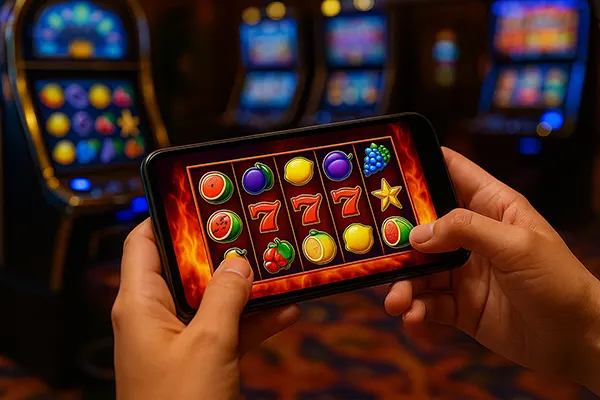
Evolution of Table Games: From Classic Casino to Mobile Format
Table games have long been a cornerstone of entertainment, blending strategy, chance, and social interaction. From the velvet-covered tables of traditional casinos to today’s mobile applications, their journey reflects not only technological progress but also changing player expectations. In 2025, table games continue to adapt, offering accessibility and innovation while maintaining the classic features that made them iconic.
The Traditional Roots of Table Games
Classic casinos were the birthplace of iconic table games such as roulette, blackjack, baccarat, and poker. These games thrived on physical presence, tactile chips, and the atmosphere of a crowded gaming hall. The setup created a sense of prestige and exclusivity, often associated with glamour and sophistication. For many decades, this environment shaped the perception of gambling worldwide.
Games like blackjack or poker relied not only on rules but also on interpersonal dynamics. Reading opponents, spotting behavioural cues, and engaging in strategic betting became part of the overall experience. This human element added depth and complexity, making table games more than simple wagering activities.
Despite their allure, traditional formats limited participation. Players had to travel to physical venues, adhere to dress codes, and invest significant time. While appealing for enthusiasts, these barriers restricted the accessibility of table games to wider audiences, leaving room for change as technology advanced.
The Impact of Casino Expansion
Throughout the 20th century, the expansion of casinos worldwide brought table games to a global audience. Las Vegas, Monte Carlo, and Macau became symbols of gambling culture, where tables hosted not only amateurs but also world-class professionals. This era established the games as cultural icons and fostered traditions that remain relevant.
The popularity of these destinations also drove standardisation of rules, ensuring players could enjoy consistent experiences across borders. This consistency became critical as gambling gained international recognition, with table games forming the core of casino offerings everywhere.
However, while casinos grew in number, the exclusivity factor persisted. The glamour and rituals of the traditional setup maintained their appeal, but accessibility remained confined to those able to visit these hubs. This imbalance eventually set the stage for digital transformation.
The Digital Revolution
The internet fundamentally reshaped the accessibility of table games. By the early 2000s, online versions of blackjack, roulette, and poker became widely available. Players could now join from home, removing geographical and logistical restrictions. This transition democratised the experience, enabling casual players to engage without the obligations of travelling.
Online adaptations also offered new features. Multiple game variants emerged, introducing side bets, progressive jackpots, and flexible table limits. These innovations diversified the experience, appealing both to seasoned players and beginners. Additionally, secure digital payment methods and regulatory frameworks reinforced trust in online play.
By 2025, the rise of live dealer games has brought online experiences closer to physical ones. Real croupiers streamed in real-time provide the social element that early online tables lacked. This innovation bridges tradition and technology, ensuring players enjoy authenticity alongside convenience.
Technological Enhancements in Online Play
High-definition streaming, low-latency connections, and advanced random number generators have enhanced reliability and realism. Players can interact with dealers and fellow participants through integrated chat functions, replicating the communal aspects of a casino floor.
Virtual reality (VR) and augmented reality (AR) are also gradually influencing table games. Although still niche in 2025, these technologies promise immersive environments where players can sit at digital tables with lifelike precision, adding another dimension to engagement.
Security has equally advanced. Sophisticated encryption protocols and international licensing ensure fairness and protect user data, reinforcing trust in digital formats. These improvements collectively elevate the status of online table games from mere alternatives to authentic counterparts of physical venues.

The Mobile Era
The rapid adoption of smartphones accelerated the evolution of table games into portable formats. With responsive design and dedicated applications, players can now access blackjack, roulette, and poker instantly, regardless of location. The convenience factor is unparalleled, transforming occasional play into a regular part of daily life for many.
Mobile formats also adapt to user behaviour by integrating intuitive interfaces, touch controls, and quick loading times. These optimisations ensure that the experience remains seamless even on smaller screens, making table games more accessible than ever before.
Moreover, mobile connectivity allows players to enjoy shorter, casual sessions without committing long periods. This flexibility aligns with modern lifestyles, where convenience often outweighs tradition, ensuring table games remain relevant to new generations of players.
Future Prospects for Mobile Table Games
By 2025, artificial intelligence and machine learning tools are shaping personalised experiences in mobile gaming. Adaptive systems can suggest suitable game types, provide tutorials, and tailor betting limits according to player profiles. This customisation enhances accessibility while promoting responsible play.
The integration of cross-device synchronisation also ensures continuity. Players can begin a game on their desktop and continue on their mobile without interruption, reflecting broader trends in digital ecosystems. Such adaptability strengthens the role of mobile gaming within the overall gambling industry.
Looking ahead, as 5G networks expand and AR/VR solutions become more affordable, mobile table games may incorporate immersive features previously reserved for high-end technology. This shift will further blur the line between physical and digital environments, shaping the future of the industry.
-
 Why Red/Black in Roulette Isn’t 50/50: A Mathematical B...
Why Red/Black in Roulette Isn’t 50/50: A Mathematical B...At first glance, betting on red or black in roulette …
01/07/2026See more -
 The Impact of Mobile Devices on Gambling Game Design an...
The Impact of Mobile Devices on Gambling Game Design an...The widespread adoption of smartphones and tablets has fundamentally reshaped …
12/18/2025See more -
 Casino Games With Skill Elements: Facts Versus Misconce...
Casino Games With Skill Elements: Facts Versus Misconce...Debates about whether skill plays a meaningful role in certain …
12/02/2025See more
